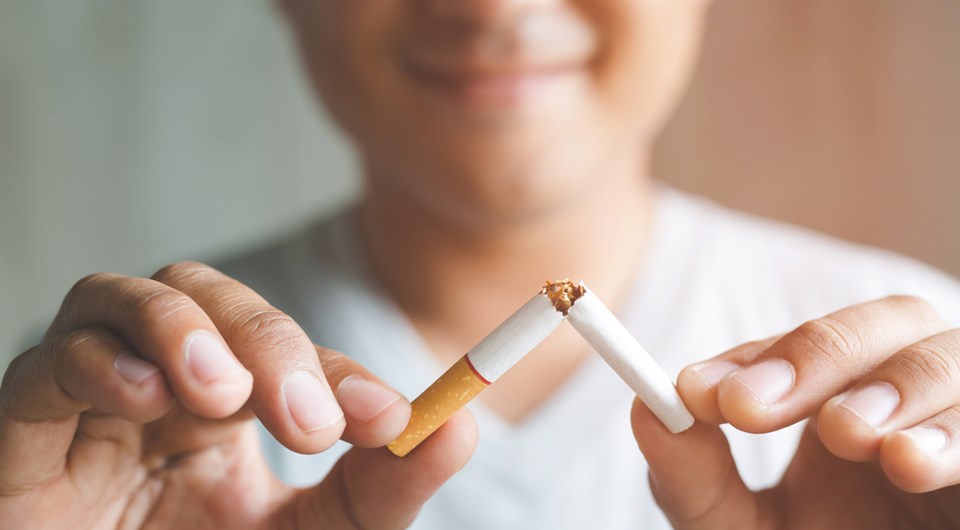
What happens to your body when you quit smoking?
Tobacco use causes lung cancer – and 14 other cancers – as well as heart and respiratory diseases that lead to early death. But within only 72 hours of your last cigarette, you will feel the gains!
By: PGH, Preferred Global Health
May 31 is the World No Tobacco Day. The benefits of quitting tobacco are well known, but you might not know that the positive impact starts soon after the last cigarette, even within 8 hours!

Read on to discover the timeline of how your body can repair itself once you stop and the improvements you will notice!
It is never too early or too late to quit. Stopping adds years to your life and your body will start to heal.
Timeline of Repair and Healing
• 20 minutes: when you smoke your heart rate goes up. About 20 minutes after your last cigarette, your blood pressure and your pulse rate will return to normal.
• 8 hours: nicotine levels in your blood will drop by half which means that withdrawal symptoms may begin*. Around the same time, poisonous carbon monoxide levels in your blood will decrease by over 50% meaning oxygen levels that were starved off are on their way to going back to normal.
*Nicotine is so addictive because it is absorbed by the bloodstream very quickly, leading to release of adrenaline and dopamine hormones, but also rapidly wearing off. This is what makes you seek more, again, and again.
• 24 hours: withdrawal symptoms like irritability, increased appetite, nicotine cravings, anxiety, difficulty sleeping or concentrating. But they won’t last forever. There are many ways to help with these temporary symptoms.
• 48 hours: your sense of smell and of taste will improve. They were numbed by hot, toxic smoke. Your lungs will start clearing out all the mucus, dirt, and dust that have been amassing because the cilia (tiny, hair-like structures) lining them can move again after being paralyzed.
Your bloodstream is now also clear of carbon monoxide and nicotine!
• 72 hours: lungs and bronchial tubes will begin to relax, allowing more air to come in. Breathing will be easier. And the eradication of carbon monoxide in your blood gives a boost of oxygen.
Withdrawal symptoms and cravings peak on days 3 or 4 because your body is completely clear of nicotine. Hold in there. The hardest part is almost over!
• 5-10 days: most smokers notice a reduction of nicotine cravings.
• 2-4 weeks: physical and psychological effects of withdrawal should end. If they are still there after one month talk to your primary doctor or smoke cessation counselor.
• 4-12 weeks: your circulatory system is starting to get better. Smoking narrows your arteries and makes your heart pump blood harder and faster. Physical activity will become easier!
• 3-9 months: your lungs start to clean out at 3 months. Coughing and wheezing happen less frequently. Your risk of respiratory infections goes down. At 9 months, lung capacity rises by around 10%.
• 1 year: the risk of heart attack drops to about half that of a person who still smokes.
• 2-5 years: risk of stroke can drop to the level of a non-smoker as your blood vessels widen making blood clots less likely.
Within 5 years, the risk of cancers of the mouth, throat, esophagus, and bladder decreases by 50%.
• 10 years: the risk of lung cancer is reduced by 50%.
• 15 years: your risk of heart attack is the same as someone who has never smoked.
• 20 years: the risk of developing pancreatic cancer is the same as someone who never smoked. In females, the risk of dying from all smoking-related causes is also the same as a non-smoker.

Many resources, cessation aids (like nicotine patches) and treatments exist to help you or someone you care about quit today.
Don’t put it off any longer – you can stop today.
PGH, or Preferred Global Health, is the valued partner and service provider to Tune Protect for the MSO myEliteDoctor. expert second medical opinion service.
myEliteDoctor is included free of charge with eligible myFlexi CI plans that offer coverage up to 3,000,000 baht* for 5 critical disease groups.
Because everyone has the right to choose the option which benefits them the most.
Remark
* Any product benefits, coverages and premiums subjected to insurance plan you have selected. Please read and understand the plan, underwriting conditions, coverages, exclusion and its policy wording before applying the insurance



